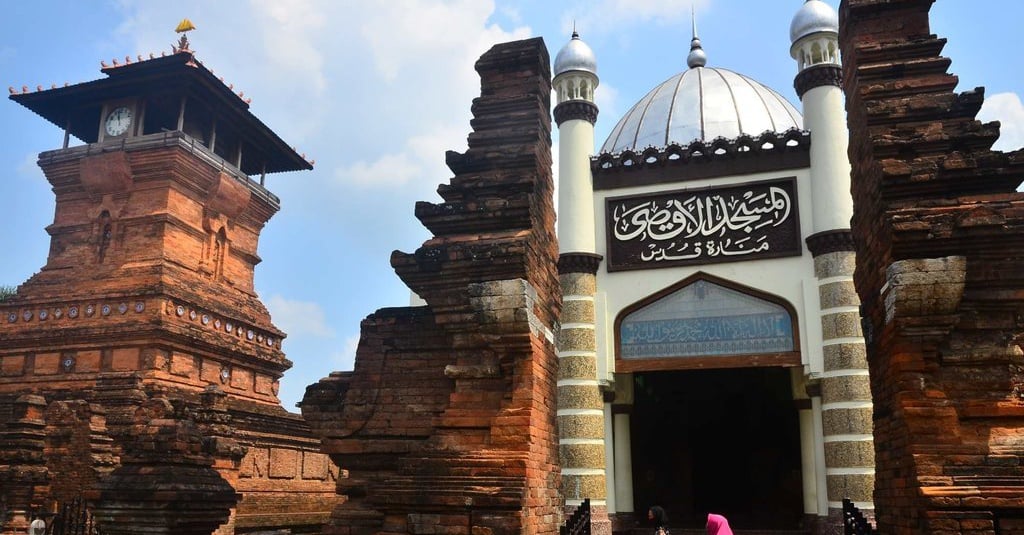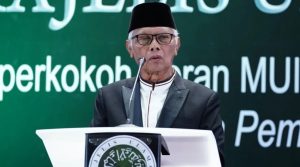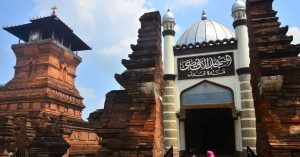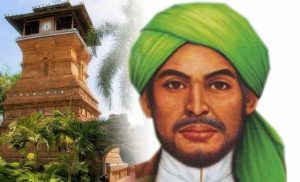In the heart of Central Java stands Masjid Al-Aqsa Menara Kudus, a centuries-old mosque whose story links the spiritual heritage of Indonesia to the sacred city of Jerusalem. Built in 1530 by Sunan Kudus, a revered scholar and one of Wali Songo (nine revered scholars who spearheaded the spread of Islam in Java), the mosque is a striking fusion of Islamic faith and Javanese-Hindu artistry.
Located in Kudus’s old town square, the mosque complex features a towering 17-meter brick minaret in the style of a Hindu temple, traditional Javanese gateways, and the tomb of Sunan Kudus himself. Its architecture reflects the harmonious blending of cultures during the spread of Islam in Java.
At the mosque’s heart lies a remarkable relic: a stone from Al-Quds (Jerusalem), brought by Sunan Kudus after years of studying in Palestine. It bears an ancient Arabic inscription recording a grant of authority from a Palestinian amir, which Sunan Kudus later transferred to Java with his teacher’s blessing. Inspired by Jerusalem’s sanctity, he named the town “Kudus,” derived from Al-Quds, meaning “holy.”
Sunan Kudus’s legacy extends beyond architecture. Historical chronicles recall his role in the 1524–1526 wars between the Islamic Sultanate of Demak and the Hindu Kingdom of Majapahit. After his father, the fourth imam of Demak’s Grand Mosque, fell in battle, Sunan Kudus became the fifth imam and led Demak’s decisive campaigns under Sultan Trenggana.
Also Read: The Forty-Four-Days of Glory: Azerbaijan’s Struggle for Justice and Peace
Renowned for his tolerance, Sunan Kudus instructed local Muslims to forgo sacrificing cows during Eid al-Adha, respecting the Hindu reverence for the animal. Instead, buffalo were offered, a tradition that survives in Kudus to this day.
Sunan Kudus died in 1550 while leading the dawn prayer, his final prostration becoming part of local legend. His burial site beside the mosque remains a center of pilgrimage, while the Masjid Al-Aqsa Menara Kudus continues to stand as a living symbol of Indonesia’s deep spiritual and cultural ties to Palestine. []
Source: “Hubungan Indonesia & Palestina” by Imaam Yakhsyallah Mansur and Ali Farkhan Tsani, MINA, Jakarta, October 2024
Mi’raj News Agency (MINA)
Also Read: Palestine Solidarity Month: A Collective Movement for Al-Aqsa and Palestine’s Freedom





























 Mina Indonesia
Mina Indonesia Mina Arabic
Mina Arabic